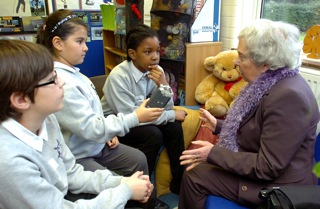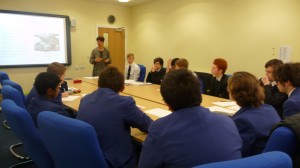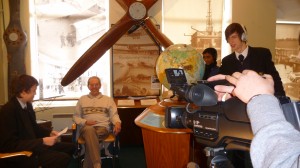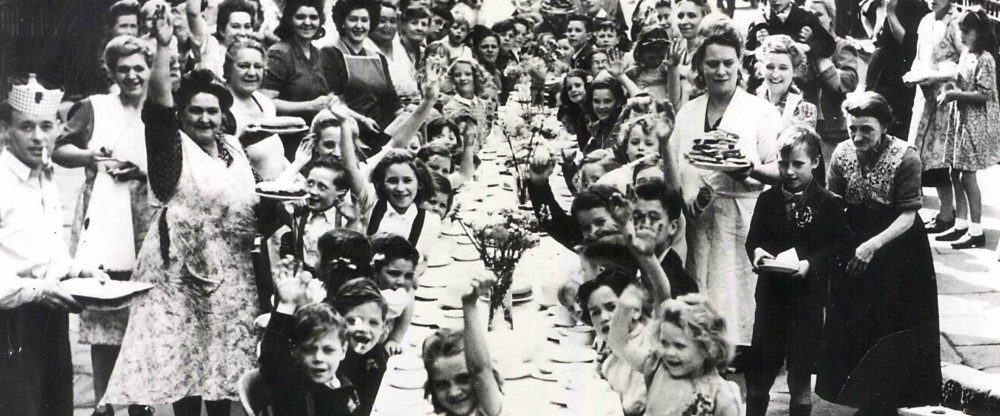 Oral History is an interactive way for young people of all ages to engage with history face to face and learn about history first hand from those who experienced it. The process of learning to do oral history and community engagement are life-time skills. Young people also develop the skills and confidence to speak up and ask their own questions with people from other generations. Barbara has plenty of experience in working alongside class teachers to develop tailor-made training for their classes. Interviewing topics can be about anything that fits in with the class curriculum.
Oral History is an interactive way for young people of all ages to engage with history face to face and learn about history first hand from those who experienced it. The process of learning to do oral history and community engagement are life-time skills. Young people also develop the skills and confidence to speak up and ask their own questions with people from other generations. Barbara has plenty of experience in working alongside class teachers to develop tailor-made training for their classes. Interviewing topics can be about anything that fits in with the class curriculum.
Barbara trained the year 6 class in St Martin’s School in Salisbury, with the topics ‘The area I grew up in’ and ‘Toys and Games.’ The young people in this class were very excited, but nervous, at the prospect of interviewing local older people they had never met before. Nerves were quickly dispelled as they discovered many of the interviewees had attended their same school – 70, 80 years earlier. They relaxed as they became absorbed in listening and inquiring into the stories of their interviewees’ pasts. A CD was made with clips from the recordings. A dance teacher colleague, selected some of these clips and interpreted them to create a fascinating public dance performance with the children .


Pupils from The John Fisher Boys’ School in Purley made a feature length documentary film about Croydon Aerodrome – London’s first main international airport. It played a significant role in both World Wars. Barbara provided two days oral history training to the pupils, they also had training in film production and were financially supported by the Heritage Lottery Fund and The Historical Association. ‘Memories of Croydon Airport’ can be viewed on The Historical Association’s website here.
Barbara has also been commissioned by museums to train schoolchildren to interview. One class was trained to interview people who lived through WW2, another was trained to interview archaeologists – their recordings were used in an exhibition. She has also trained several classes in rural secondary schools to interview Black elderly people as part of an ongoing drive to educate and combat prejudice in the area.
Schoolchildren of all ages can be trained to do oral history about any topic.

